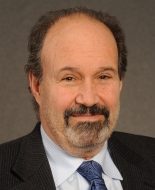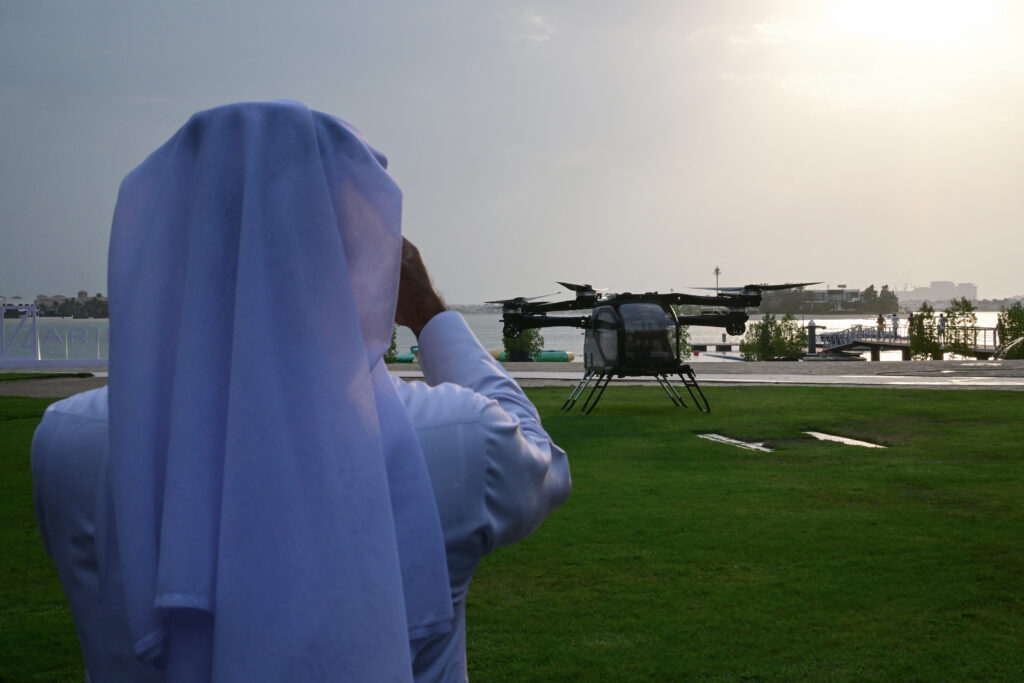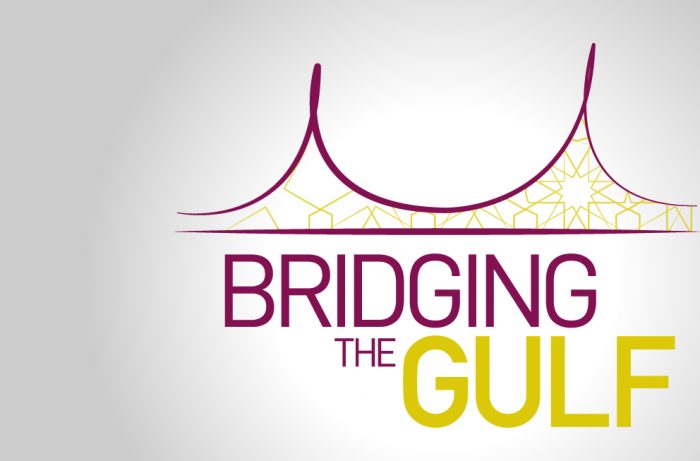
- 14 Oct 2020
Arab Public Opinion – Ignore it at your Peril
Abstract
In a world of autocracy, repression and conflict, polls often offer ordinary citizens a rare opportunity to express an opinion. Independent pollsters operating in cooperation with local polling companies have gathered more than a decade of data that provides crucial insight into public opinion often not reflected in much of the Middle East’s print and broadcast media. Polling data has, over time, been supplemented by insights gained from the monitoring of social media. The polling lifts the veil on public sentiment towards issues such as Israel, the Palestinians and Iran as well as hot button items, including religion, protest and political Islam. The data demonstrates that failure to understand public sentiment and/or take it into account produces misinformed and misguided policies not only by rulers in the region but also governments like that of the United States. This webinar brings together pollsters and social media monitors to provide insights into trends in public opinion in the Middle East as well as how they operate in a restricted environment.
Join us for this public talk on 14 October 2020, 9.00am to 10.30am (SGT), which will be conducted online via Zoom. All are welcome to participate. An e-invite will be sent to you near the event date.
This event is free, however, registration is compulsory.
Photo by Glenn Carstens-Peters on Unsplash
Listen to the full event here:
Watch the full event here:
Read the Summary of Event Proceedings:
By Ilyas Yusuf Bin Salim Bin Omar
Research Assistant, Middle East Institute, National University of Singapore
Abstract
The 2011 Arab Spring uprisings serve as a testament to why Arab public opinion matters. Yet, the Arab countries in the Middle East often present a challenging environment for those seeking a window into sentiments on the ground due to a plethora of reasons, from their authoritarian environments to cultural factors. No strangers to the complexities of the region, Dr David Pollock and Dr Michael Robbins shared their insights on measuring Arab public opinion, discussing both the methodological aspects of the enterprise as well as the findings of their own research.
Methodological Considerations
Dr Robbins and Dr Pollock started the session by discussing the methodological nuances and realities of measuring Arab public opinion, and the importance of ensuring the validity of the polling data.
Both speakers agreed that face-to-face interviews represent the most ideal method to accurately get a sense of ground sentiments. This is mainly due to cultural reasons as people in the region are more willing to engage strangers in person, rather than online or through the telephone. Instead of preferring the anonymity afforded by non-face-to-face methods such as telephone interviews and online surveys, interviewees are in fact more willing to share their views with greater candour with interviewers once a certain degree of rapport has been built between them. Thus, while face-to-face interviews tend to be expensive and time-consuming, they remain the preferred method for both speakers.
They also said that although surveys are another useful tool to poll Arab public opinion, they can pose certain methodological problems when it comes to issues of validity because respondents are aware they are being surveyed, thus, they might be reluctant to reveal their genuine views on certain issues. To counter that, respondents are often asked a set of diverse questions on a single issue, so that multiple responses can be obtained and analysed by researchers to come up with an accurate understanding of their opinions. To address the difficulty of obtaining truthful answers to controversial issues, Dr Pollock revealed an ingenious workaround that consisted of collaborating with commercial companies to discreetly add political-related questions to the latter’s market research surveys. While he conceded that this approach would be considered somewhat methodologically impure by social science standards, it was reasonable and accurate enough given the realities of the situation.
Both speakers also talked about the disruptions posed by the Covid-19 pandemic on the enterprise of polling. The unfeasibility of face-to-face interviews under pandemic conditions represent a key challenge, and researchers are also now ethically compelled to find the right balance in conducting accurate data-gathering without endangering their respondents’ safely. Despite these challenges, however, Dr Robbins also noted that the crisis situation presented several opportunities. For instance, he suggested that pollsters should not simply attempt to recreate results based on pre-pandemic methods. In fact, the application of alternative methods to acquire data might even reveal hitherto unnoticed biases of previous approaches.
Phone surveys, for instance, have the benefit of reducing the “interviewer effect”, as respondents could be more willing to speak about controversial issues in the physical absence of an interviewer. While phone surveys tended to yield lower response rates and different data compared to face-to-face interviews, Dr Robbins said they can be refined to improve their methodological validity. Overall, the point is to reduce reliance on any one approach, and instead achieve a nuanced understanding and application of the various methods to best gauge public sentiment.
Arab Public Opinion and Foreign Policy
Drawing on their own research, Dr Pollock and Dr Robbins next discussed Arab sentiments regarding key foreign policy issues.
Both speakers drew attention to shifts in Arab public opinion regarding the Palestine–Israel conflict, traditionally regarded as a key issue in the region. Various polls have shown that although the conflict remained an important issue, it had fallen in priority. Dr Pollock said that many people, especially those in the Gulf, were much more concerned about events in Iran and Yemen. However, in countries closer to Israel, such as Egypt, Jordan and Lebanon, the Palestinian–Israeli conflict continued to be a high-priority issue. He also noted that support for a two-state solution was rising within Arab countries, and that many Arabs were in favour of offering both Israel and Palestine incentives to reach a compromise; such sentiments were known to the governments of United Arab Emirates and Bahrain, and might have played a role in motivating them to normalise relations with Israel.
Despite its reduction in importance as a foreign policy issue, however, Dr Robbins said that the Palestine–Israel conflict still commanded a significant emotive response from many across the Arab world. He also noted the difficulty of accurately gauging sentiments on this issue since many respondents were conscious of the surrounding controversy, and might be less willing to answer candidly.
The speakers also discussed Arab public sentiments on other geopolitical players in the region. Both Dr Robbins and Dr Pollock noted that across the Arab world, there was significant and consistent popular animosity toward Iran and its proxies such as Hizballah and the Houthi factions. Rhetoric and directives to contain Iran are, thus, not merely a state or elite position, but rather one that is closely aligned with popular opinion.
When it comes to the US, Dr Robbins said that support for President Donald Trump is considerably lower compared to other state leaders such as Russian President Vladimir Putin and Turkish President Recep Tayyip Erdogan. He also said that Arab views regarding China are somewhat ambivalent, as many are less familiar with the Asian power as compared to the US. On one hand, there seems to be greater favourability towards China right now due to its successful handling of the Covid-19 pandemic and its development aid policies through its Belt Road Initiative (BRI). On the other hand, some have expressed doubts about China’s neutrality and the BRI policy, seeing the latter as taking advantage of other countries through asymmetrical economic arrangements. Overall, many in the Arab world still do not have firm opinions on China, and such views should thus continue to be tracked as China works to further expand its role in the region.
Arab Public Opinion and Domestic Foreign Policy
While the Middle East is often seen by outsiders as a place of incessant intra-regional conflict, a large majority of Arab respondents often express more concern about domestic issues rather than foreign policy issues.
In particular, issues surrounding governance are of central importance to many Arab respondents. Notably, public trust in government has experienced a steep decline since the Arab uprisings in 2011. A major reason for this is due to increasing public perception of state corruption as well as dissatisfaction with the repressive government measures. Dr Robbins said there was broad support for democracy, even though many Arabs are aware of the problems of democratic systems. However, he also noted that democracy is not necessarily seen as participatory free elections; rather, it is often connected to the idea of an efficient and beneficial state that took care of its people’s needs — again, this highlights the importance of good governance to many Arabs.
Both speakers also said that the Arab public is often aware of the progressive erosion of its rights to various freedoms under authoritarian states. Arab discontent regarding this issue has been reflected by polls that show increasing desires among the public to immigrate to other countries. There has also been a dramatic increase, especially among young people, in participation in informal politics, for example in petitions critical of government policies. Despite this, Mr Pollock noted that many Arabs remain sceptical about the viability of protests as a way to instigate positive change. While there have been vibrant protests in countries such as Sudan, Lebanon and Algeria, he said that many Arabs are generally not willing to risk disrupting political and social stability, and are afraid that protests will backfire and invite more government repression.
Highlights from the Question & Answer Segment
During the Q&A session, the audience was chiefly interested in the speakers’ insights on the methodology used in polling Arab public opinion. For instance, how did Dr Pollock balance practicality and accuracy in his method of tacking on political questions to commercial market research surveys?
While Dr Pollock acknowledged the inevitable methodological issues of his approach, he said that he had multiple ways of mitigating them. One simple but effective fix was to ensure that whenever possible, his political questions were placed at the beginning of the survey, so that respondents’ answers would not be unduly affected by the consumer-related questions that followed. He also noted that to avoid arousing discomfort or suspicion in respondents, it was usually helpful to inform respondents about the transition between political and consumer-related questions in a straightforward manner rather than attempting to present them as part of the same topic. Lastly, he revealed that one of his controls for sieving out disingenuous responses was to ask respondents questions on fictitious events and issues. Respondents who expressed opinions on these fictitious issues were then statistically deleted from the pool, as their answers cast doubt on the validity of their opinions on actual issues. While Dr Pollock conceded that these fixes were not necessarily perfect, under the circumstances they were helpful in ensuring more accurate results.
Another area of audience interest concerned the ethical aspects of measuring Arab public sentiments — how did the speakers ensure they remained ethically responsible in their enterprise?
Both speakers acknowledged that the business of sentiment-gathering was indeed fraught with ethical considerations, as the data they acquired and published could have any number of consequences, from being used as a driver of government policy to being framed as a sensational news item that could end up polarising the public. Thus, they noted the importance of maintaining methodological rigour and scientific objectivity as best as possible under the circumstances, as well as the need to avoid asking loaded questions that might lead respondents to predetermined answers. Another key aspect of ensuring ethical standards was to make their methodology as transparent as possible, so that independent observers could draw their own conclusions from the data, and even provide feedback if they had issues with the measuring process.
About the Speakers

Director,
Arab Barometer
Dr David Pollock
Bernstein Fellow,
The Washington Institute
Michael Robbins is Director of Arab Barometer. He has been a part of the project since its inception, serving as director since 2014. He has led or overseen more than 50 surveys in international contexts and is a leading expert in survey methods on ensuring data quality. His work on Arab public opinion, political Islam and political parties has been published in Comparative Political Studies, the Journal of Conflict Resolution and the Journal of Democracy. He received the American Political Science Association Aaron Wildavsky Award for the Best Dissertation in the field of Religion and Politics.

David Pollock, the Bernstein fellow at The Washington Institute, focuses on the political dynamics of Middle East countries. He is the director of Project Fikra, a program of research, publication, and network-building designed to generate policy ideas for promoting positive change and countering the spread of extremism in the Middle East. At the forefront of this effort is Fikra Forum, a unique Arabic-English bilingual online platform that promotes exchanges between mainstream Muslims and Arab democrats and U.S. decisionmakers and opinion leaders.
Dr Pollock served previously as senior advisor for the Broader Middle East at the State Department, a post he assumed in 2002. In that capacity, he provided policy advice on issues of democracy and reform in the region, with a focus on women’s rights. He also helped launch the department’s $15 million Iraqi Women’s Democracy Initiative and the U.S.-Afghan Women’s Council, working directly with advocates across the Middle East.
Dr Pollock has served as a visiting lecturer at Harvard University and as assistant professor at George Washington University. He has traveled widely in the Middle East and maintains a large network of contacts in government, academia, and business throughout the region.



